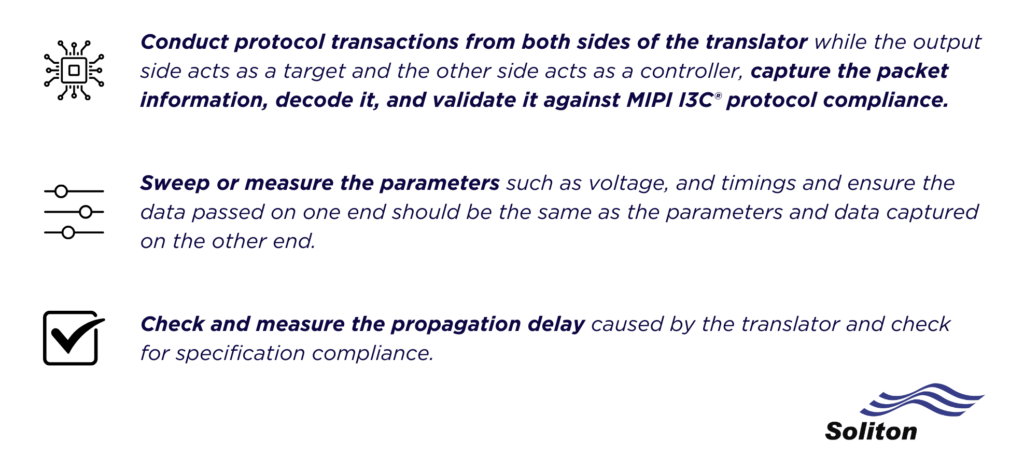Read on to learn more about how Soliton helped a customer with their MIPI I3C® logic translator validation by emulating both controller and target, saving time and capital, and providing tailored, accurate solutions for complex semiconductor validation challenges.
Increasingly sophisticated technology necessitates the need for more complex electronic systems, resulting in communication between components in a system, like sensors and controllers, becoming complex as well. This requires the integration of an increased number of components on a single PCB system and the addition of multiple devices to a single communication bus. However, in several cases, like the MIPI I3C®, there is a limitation on the number of devices that can be connected on a single bus due to physical layer limitations. To overcome this challenge, devices like Logic Translators are used, which provide the capability to isolate a group of devices and form a separate bus while bridging these devices to all the other devices in the main bus.
One of our customers, a prominent semiconductor company, developed a MIPI I3C® logic translator. Unlike the validation of a single MIPI I3C® controller or target devices, where we can add a simple MIPI I3C® emulator to test the specifications; the validation of a logic translator adds complexity since both the input and output ends must be validated simultaneously. As a result, the customer sought the expertise of Soliton and the capabilities of PVS to streamline and enhance the MIPI I3C® validation of the logic translator.
